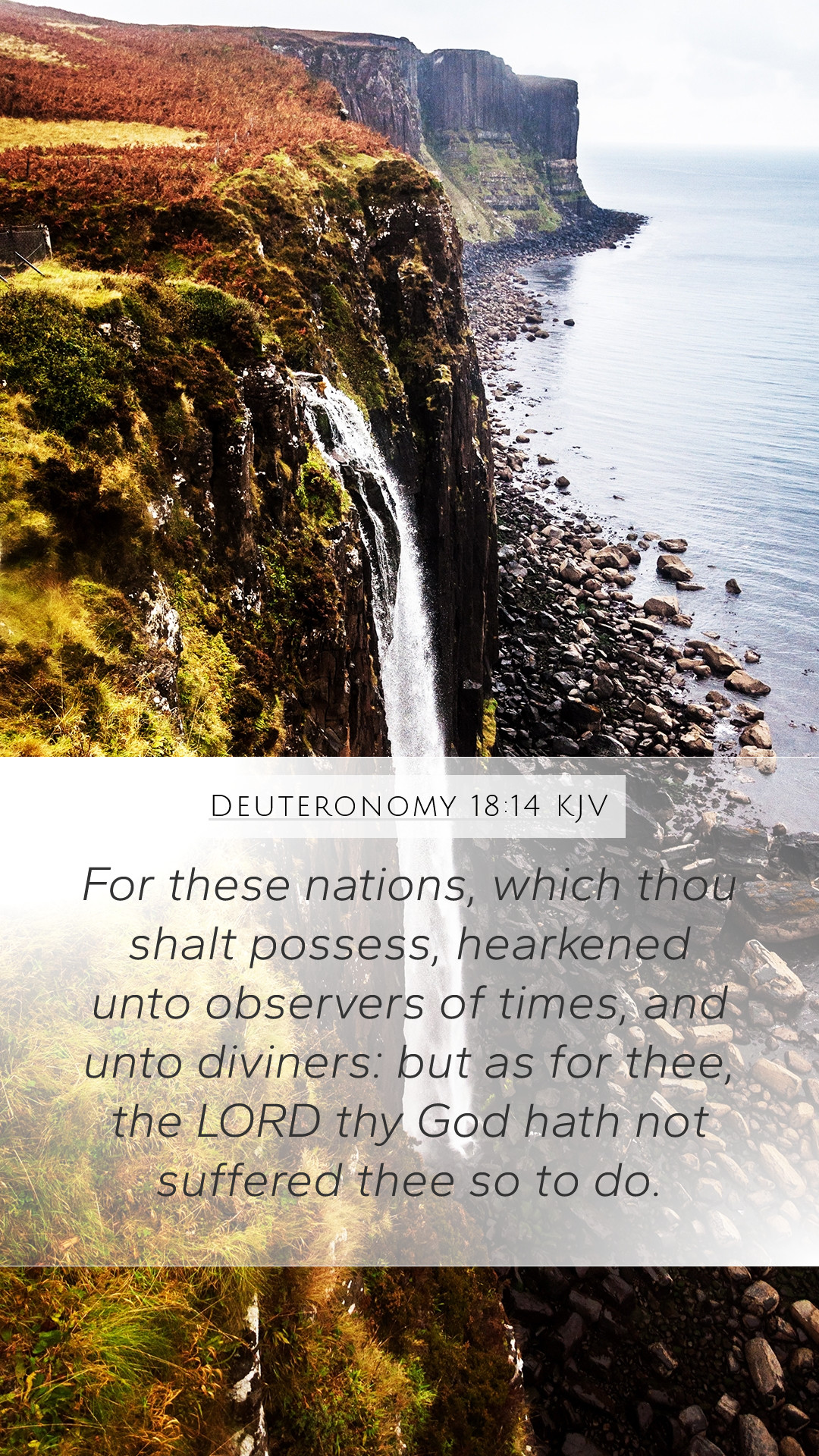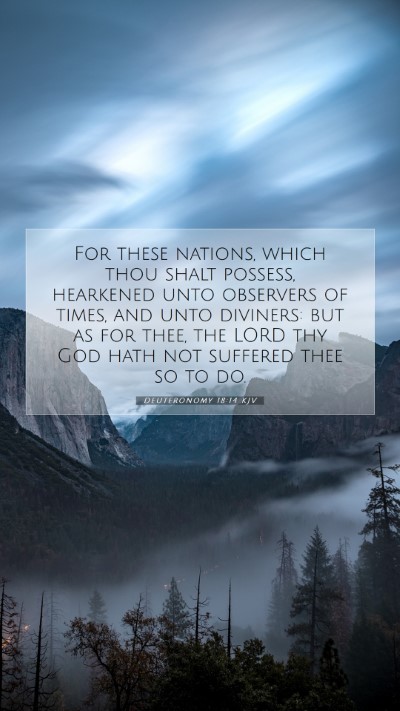Understanding Deuteronomy 18:14
In this exploration of Deuteronomy 18:14, we aim to provide an insightful summary of its meaning, combining interpretations from various public domain commentaries. This will serve as a guide for those seeking deeper Bible verse meanings, Bible verse interpretations, and practical applications of this Scripture.
Context of Deuteronomy 18:14
The verse states: "For these nations, which thou shalt possess, hearkened unto observers of times, and unto diviners: but as for thee, the Lord thy God hath not suffered thee so to do." This passage is situated within the laws given to the Israelites as they prepare to enter the Promised Land, contrasting their future practices with the idolatrous customs of the surrounding nations.
Commentary Insights
-
Matthew Henry's Commentary:
Matthew Henry emphasizes the importance of spiritual discernment, noting that the Israelites were to be separate from the divination practices of other nations. He outlines that relying on fortune-tellers and other forms of divination is contrary to trusting in God’s guidance. Henry suggests that this verse cautions believers against adopting secular wisdom that contradicts God’s will.
-
Albert Barnes' Notes:
Barnes highlights the conflict between the divine truth offered to the Israelites and the misleading practices prominent among pagan cultures. He asserts that God’s people are called to reject such alternative sources of knowledge and to seek divine wisdom instead. His commentary illustrates that the rejection of such practices is fundamental in establishing a covenant relationship with God.
-
Adam Clarke's Commentary:
Clarke offers a historical perspective, explaining that divination was commonplace among the Canaanite nations, and emphasizes that God forbids His people from partaking in such practices. He interprets this as a protective measure for the Israelites, ensuring their loyalty to Him and safeguarding their spiritual integrity. Clarke also discusses the relevance of the Holy Spirit as the ultimate guide in understanding spiritual matters.
Key Themes and Applications
This verse underscores several key themes relevant to modern believers:
-
God’s Authority:
God asserts His authority over the spiritual lives of His people, emphasizing direct reliance on Him rather than on worldly practices.
-
Spiritual Integrity:
Maintaining spiritual integrity through obedience to God's commands protects believers from the deception found in popular culture.
-
Seeking Divine Counsel:
Instead of seeking answers from unreliable sources, believers are reminded to seek divine counsel through prayer and Biblical study.
Cross References
In studying Deuteronomy 18:14, several cross-references can provide additional insights:
- Leviticus 19:31: “Regard not them that have familiar spirits, neither seek after wizards, to be defiled by them: I am the Lord your God.”
- Isaiah 8:19: “And when they shall say unto you, Seek unto them that have familiar spirits, and unto wizards that peep, and that mutter: should not a people seek unto their God?”
- Romans 12:2: “And be not conformed to this world: but be ye transformed by the renewing of your mind...”
Conclusion
Deuteronomy 18:14 serves as a profound reminder to remain committed to God’s guidance and to place our trust in Him rather than in the unreliable practices of the world. Through a careful Bible study approach, we gain Bible study insights that resonate with our daily lives, encouraging us to deepen our understanding of Scripture. For individuals engaging in online Bible study or Bible study groups, this verse can inspire discussions on the importance of discernment, faithfulness, and reliance on divine wisdom.


